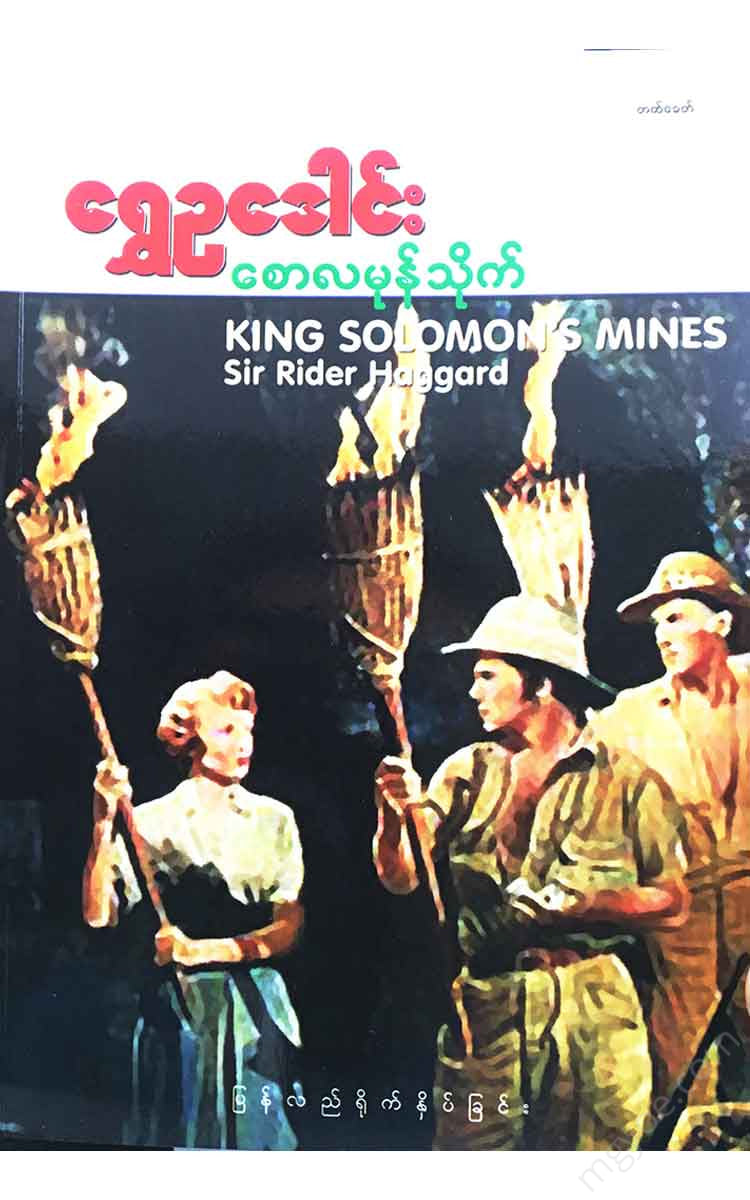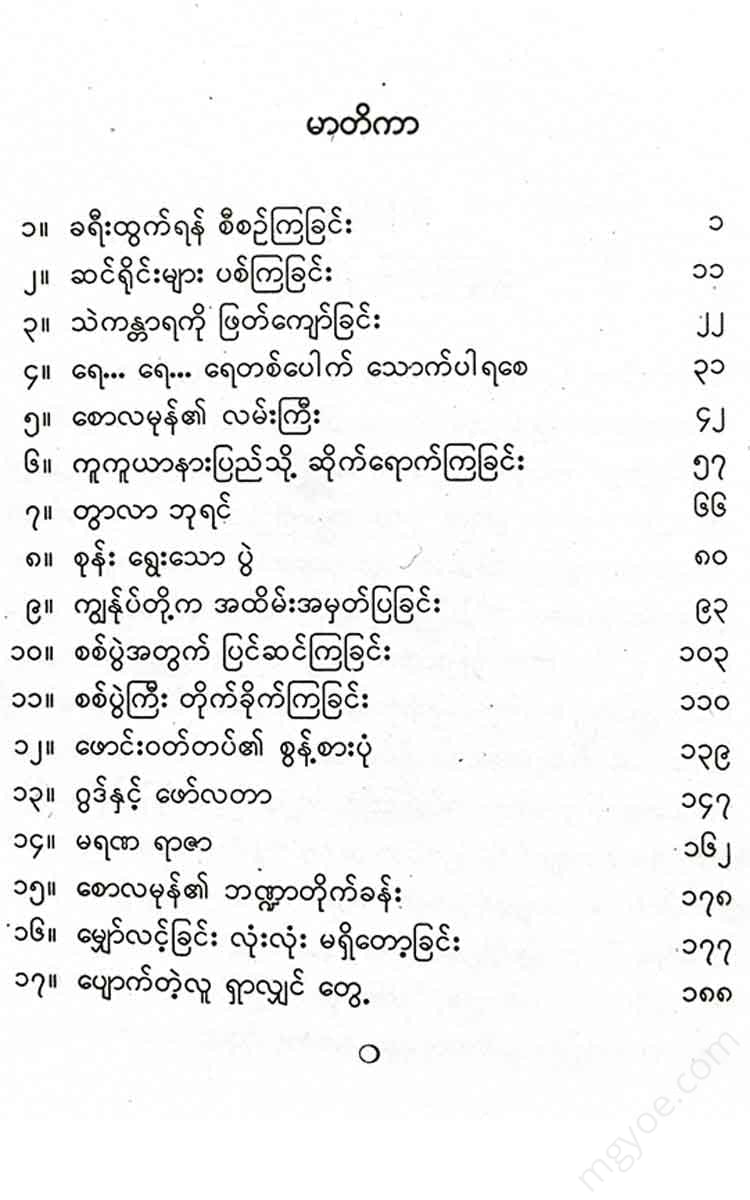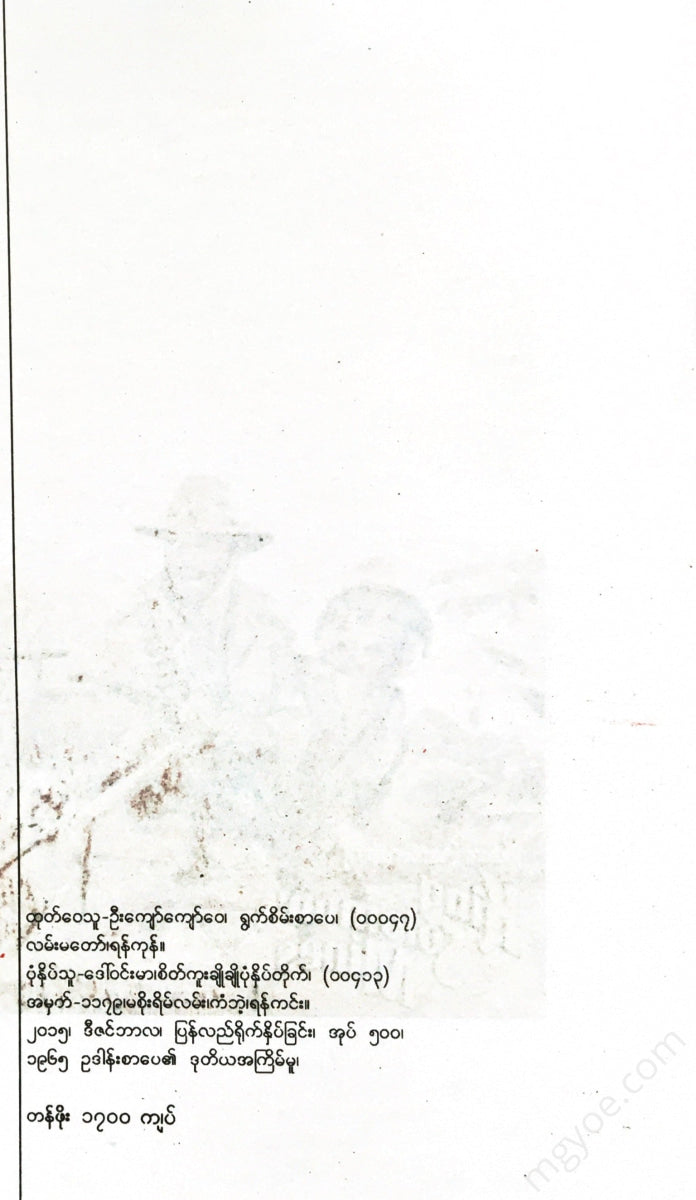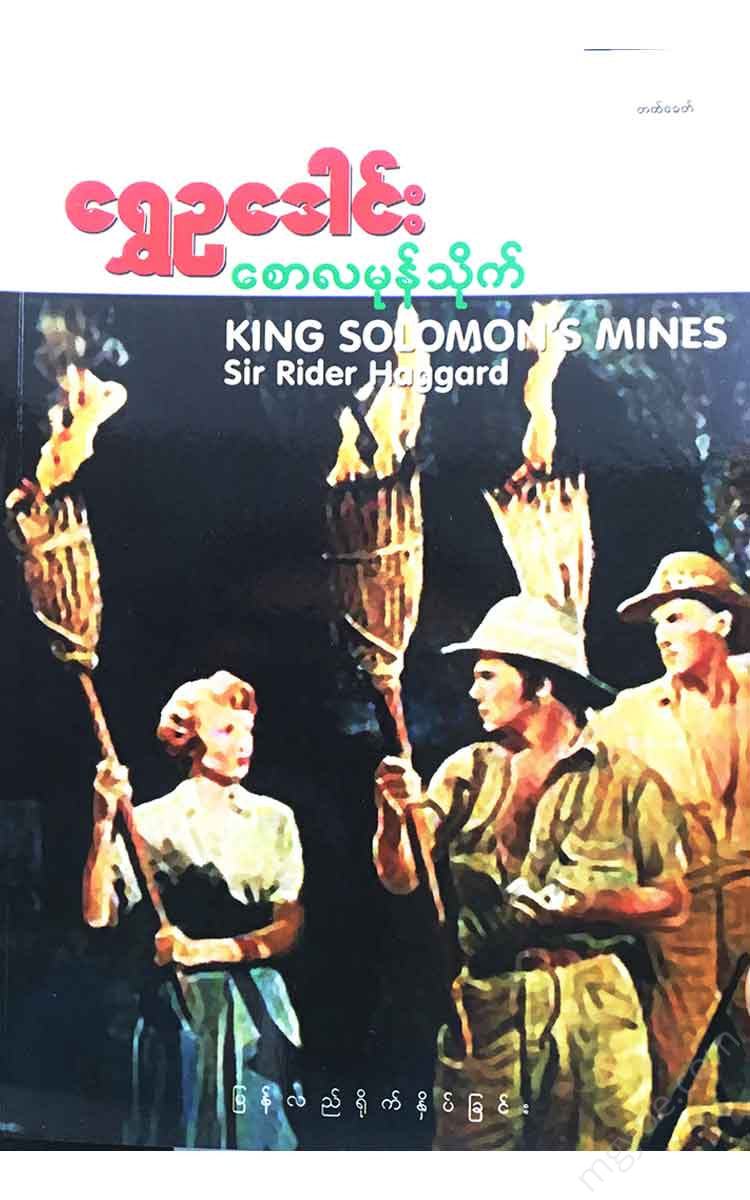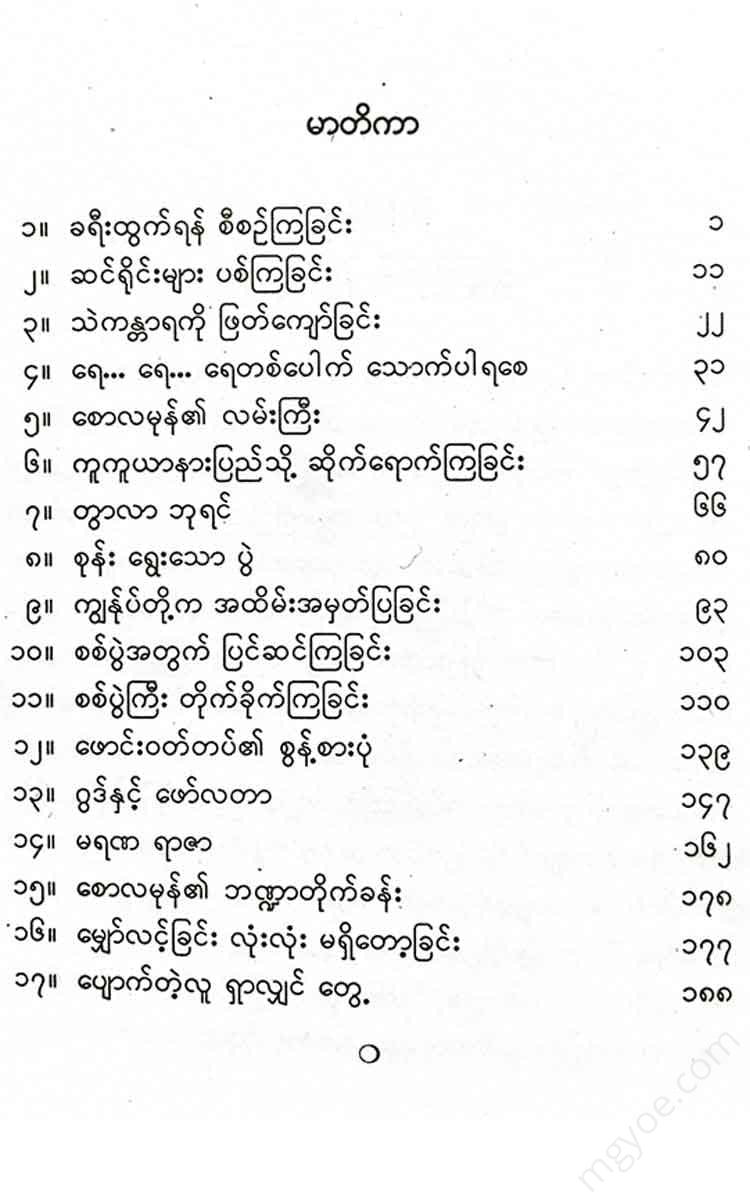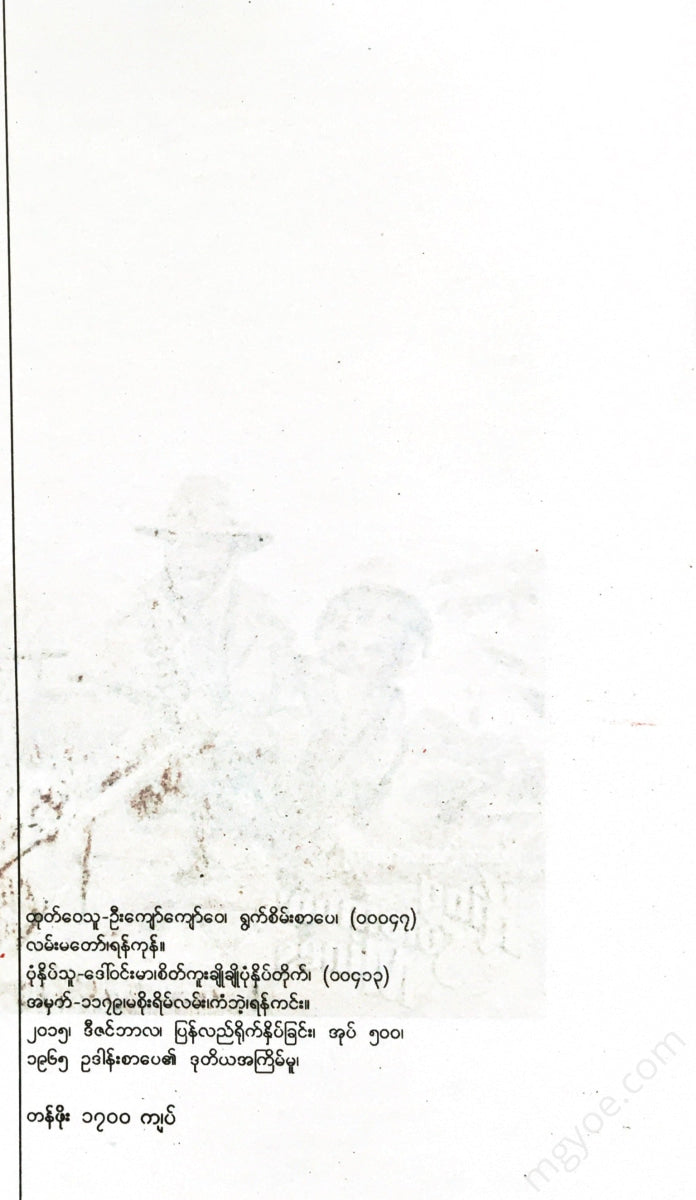စိတ်ကူးချိုချိုစာပေ
Golden Egg Peacock - Saw La Mon Thaik
Golden Egg Peacock - Saw La Mon Thaik
Couldn't load pickup availability
Chapter (1)
Planning a trip
I, Alan Quatermain, have experienced many strange and wonderful things in my 40 years as an elephant hunter in Africa, and the stories I am about to tell are some of the most amazing. In Africa, elephant hunters usually live only 4, 5, or at most 6 years, so it is a wonder that they have been able to continue their work for 40 years without dying. For those who want to read about the risks of their lives, the near-death experiences, and the heart-wrenching stories of those who are eager to read, I hope that these stories will be as heart-wrenching as a betel nut lover's visit to Taungoo. I will continue to write about them when they like.
We had been hunting elephants for three or four months in the jungle, as was our custom, and after returning to the city with the tusks we had obtained, we sold them and sailed back to the capital. On the ship we became acquainted with two passengers. They were passengers who had come from England and had changed ships. They had made acquaintance with me on the way, and I told them about their visit, and they invited me to join them.
First, I must describe the two travelers. The first was Sir Henry Carty, about thirty years of age, about six feet three inches tall, and of a strong build, in keeping with his great stature. Indeed, when I saw his broad chest, long arms and legs, his golden hair and beard, his sharp face, and his large, wide blue eyes, I thought it was rare to see a man so manly, handsome, and handsome. I am an Englishman, and though I was born in England, I have lived in Africa for more than forty years, and have not seen many Englishmen, but I cannot say whether it is because I have not seen many Englishmen. In my eyes, he is the best of men.
The second man was an ex-navy officer, whose name was Captain Wood. He was a stocky, stocky man, and was called a "gentleman," and he dressed very neatly, like a naval officer. He always wore a pair of small, single-sided glasses on his right eye. He was only about thirty years old, but he had retired on half pay, as was the custom among naval officers, and had no further opportunity for promotion. He had come with his friend Sir Henrique to Africa on a business.
Let me mention the case of Sir Henry Carty. Sir Henry was a baronet, a hereditary title of lord, and it was English custom that if a man died without making a will, his eldest son would inherit all his estates, while his other sons and daughters would receive only what the eldest son would give them. Sir Henry's father had two sons, and he died intestate, leaving only Sir Henry, the heir, to inherit all his estates, leaving his younger son, George, destitute. Sir Henry was a generous man, and although he had intended to give a small portion of his estate to his younger brother, The younger brother George was a proud man, and had been a troublemaker to his elder brother, so he had not yet given him the money, but had postponed it. Finally, the two brothers had a big argument about one thing, and George took all the little money he had from the bank and went to Africa. His elder brother, Sir Henry, had left his proud brother for “summer,” and for more than four or five years he had not heard anything from his younger brother, but, forgetting the quarrel, as they were blood relatives, he, being a bachelor, had set out for Africa with his friend Captain Good to investigate his brother’s news. After sailing together for three or four days and becoming acquainted, Sir Henry even invited me to help him in the search for George, and to go with them.
When we arrived at Durban, where I was staying, Sir Henry and Goode disembarked with me and lodged at my house. In the meantime, we made inquiries about George, and learned the following.
About 5 years ago, George landed in Africa under the name of Neville, hired a Khepha servant, and crossed the desert to find a treasure called "Solomon's Treasury." After more than a year, Khepha's servant returned to Durban, only skin and bones left. When compassionate people asked him about it and gave him food and water, the servant said that "Solomon's Treasury" really existed, and that his master Neville had become separated from him on the way, and that the servant had just told him that he had died.
Here I will tell you about the treasure called “Saw La Mon Treasure”. Anyone who has been to Africa has heard of the existence of a treasure called “Saw La Mon Treasure” in the middle of the continent. One incident is that about 15 years ago, a Portuguese man, exhausted from his journey, suffering from various diseases and with skin on his bones, came to my camp and asked for water and food. I gave him a cup of milk and a little bread. After drinking the milk, he said, “You are welcome. Take this letter and search for the treasure. This letter is the guide that my “oil” wrote. We followed the guide, and since we could not bear the pain of the sand,
Everyone will die and I will return alone. I will die too. You are a great man. Cross the desert and the mountains and take the treasures...” and then he died. I showed the Portuguese writings on the leather tablet that he gave me to a drunk Portuguese man, who interpreted them as follows.
“ I, de Silva, who was dying in a cave in the left-hand mountain of the two great mountains called the Son of Shiva, wrote this letter in 1590. The one who found this letter presented it to the king, who said that if the king sent an army and took the treasure, he would get more diamonds than the army could carry. I saw with my own eyes the treasury of Solomon behind the statue of Death. However, because of the witch Gagula, I was not able to take a single diamond. When I passed the left-hand mountain of the two great mountains called the Son of Shiva, the road that King Solomon had built was dirt. If you travel along that road for three days, you will reach the king’s palace. Kill the witch Gagula and take the treasures.” When I showed the above letter to Sir Henry and told him about the author's noble traveler, De Silva, Sir Henry was very excited. Sir Henry was excited, not because he wanted the treasure, but because he was looking for his brother George, who seemed to be going to find it. Sir Henry was a man who had inherited a large estate, and no treasure was too great to be desired.
There was also a map inscribed under the letters on the parchment which we had received from the Portuguese, which was a guide to the treasury, and we looked at it carefully. Finally, at Sir Henry's urging, I decided to go with them in search of George, and the rules I had drawn up for myself were as follows.
(1) Sir Henry shall be fully responsible for all expenses incurred, and all ivory and other valuables obtained shall be divided equally between myself and Captain Wood.
(2) Before I set out, Sir Henry will give me 500 gold coins. I will humbly serve Sir Henry until his affairs are resolved, or he gives up, or some disaster befalls him.
